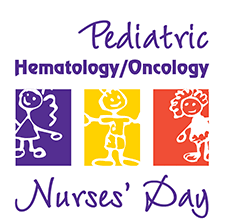Today, September 8, celebrates the nurses who work with children and families who are often facing some of the most frightening times of their lives.
As Pediatric Hematology/Oncology Nurses Day, today honors a nursing career path in which nurses rely on their expertise to help patients and families navigate diagnoses of cancer and blood disorders.
The Association of Pediatric Hematology/Oncology Nurses (APHON) notes how nurses bring technical nursing skills to this role, but they also rely heavily on their compassionate care skills. Working with infants, children, and adolescents with potentially life-threatening diseases requires a high degree of sensitivity. But pediatric hematology/oncology nurses also work with the family unit to help them understand medical plans, procedures, results, and potential outcomes.
But the deeply rewarding career offers the opportunity to touch lives in a way few other professions allow. Pediatric hematology/oncology nurses often form close bonds with both their patients and with the families who grow to rely on them for a level of care that respects their difficult situation.
They are also there to motivate patients when needed and to comfort them when that’s the only thing necessary in the moment. These nurses are continually assessing medical, physical, emotional, and social needs of their patients and families.
If you’re interested in working in this area of nursing, be sure to train in the environment for a while to help you decide, either through a clinical, an internship, or after you earn your degree. APHON recommends beginning in a pediatric inpatient unit so you gain an understanding of the pediatric care environment. Pediatric hematology/oncology nurses can work in various settings including inpatient, outpatient, home care, free-standing centers, hospitals, or physician’s offices.
Because nurses in this area need to keep current in a fast-paced and constantly evolving field, a BSN is a good goal to begin. Certification will keep you up-to-date on the newest treatments and evidence-based practices, but pediatric hematology/oncology nurses should continue to keep themselves informed on their own as well. Join a professional organization to meet others in your field and gain insight and education.
If you are a pediatric hematology/oncology nurse, take this day to feel proud of your work and your patient and family care. With such an intense and sometimes incredibly stressful environment, be sure to practice self care. Taking care of yourself will help you be a better nurse.
And if you have pediatric hematology/oncology nurses in your life, this is a great day to appreciate all they do.
- WOC Nurses Week Highlights Specialty - April 16, 2024
- Honoring Radiology Nurses Day on April 12 - April 12, 2024
- Travel Offers New Career Possibilities - April 8, 2024



